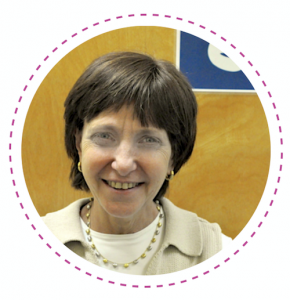History
In the 1990s, the Pediatric Residency Program of the Mercy Hospital of Pittsburgh started a unique project: training pediatric residents in breastfeeding support and promotion, then supporting those residents to sit for certification by the International Board of Lactation Examiners.

Dr. Nancy Brent, formerly the Medical Director of the Breastfeeding Center of Pittsburgh, worked in the department of Pediatrics at Mercy, where she created and directed the Maternal Infant Lactation Center. Dr. Brent took to this program because the topic was near and dear to her heart and to her professional work.
Dr. Todd Wolynn was one of the first residents to take advantage of this program. Drs. Albert Wolf, Alicia Hartung, Lucas Godinez, and Amy Maddalena all followed this path and became International Board Certified Lactation Consultants (IBCLCs).
The idea behind the program was to send these doctors and all their breastfeeding knowledge across the nation, or at least across the region. But this group of docs all joined Kids Plus Pediatrics, where they were eventually joined by their teacher, Dr. Brent.
While this group supported breastfeeding families in the practice, they soon realized that they were unique. That there was no other pediatric group like them — in structure, skill set, or expertise — anywhere in the country. And that, with so many requests pouring in from families outside their own practice, they had an opportunity to create something new.
In August of 2006, this amazing concentration of knowledge and practice in Breastfeeding Medicine formed a new entity and provided the community a new resource: the Breastfeeding Center of Pittsburgh.
The BFCPgh was formed to meet a huge gap in knowledge, support, and promotion of breastfeeding. Studies and “real-world” experiences showed that breastfeeding failures and premature weaning were often a result of misinformation, mismanagement, ignorance and sometimes even frank hostility towards breastfeeding.
Many women never even tried to breastfeed, because they didn’t know about the health advantages for them or their baby, and because they had absolutely no support. What little support existed was difficult to access, expensive, and not covered by insurance. That meager support was also hopelessly disjointed; breastfeeding problems might be addressed, but a baby’s and mother’s pertinent medical issues had to be referred back to their own providers. (For more on this history, see Dr. Wolynn’s excellent TED-style talk: “Milk Money.”)
The Breastfeeding Center of Pittsburgh was created to be a one-stop shop: the ability to see a lactation consultant and a medical provider, for the visit to be covered by insurance, for breastfeeding to be made successful, and for moms and babies pertinent medical issues to be addressed at the same time, were all under one roof.
By 2011, the BFCPgh had become a nationally recognized entity and is honored to continue providing lactation support well into the next decade.
